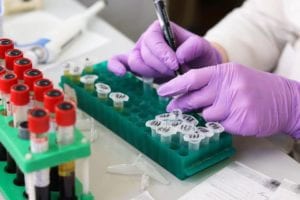According to an article in Clinical Trials Arena, Blueprint Medicine has been steadily and speedily recruiting participants for its Phase II PIONEER trial, which examines Ayvakit as a treatment for indolent systemic mastocytosis (ISM). Due to a lack of obstacles in the way of enrollment, multiple centers are recruiting and enrolling patients at a faster rate than predicted.
Enrollment for the PIONEER Trial
Blueprint is enrolling patients at 31 various sites across the United States and Europe, with a goal of reaching 244 patients who have trouble controlling a minimum of one symptom related to ISM. As of April 29, they expect to meet this goal by the middle of this year.
Recruiters on both the East and West coasts of the U.S. have announced that recruitment is going better than expected. On the East coast, three patients have already been enrolled in the dose-finding portion of the trial, with an additional six patients enrolled in the second phase. Looking to the West, ten patients have already been enrolled in the second phase.
Enrollment in Europe is also moving briskly, with a site in Germany acting as the perfect example. One researcher has already recruited five patients, well on the way to his end goal of 60 participants at that site.
Things are looking very positive, with enrollment increasing rapidly as COVID-19 restrictions ease and more people are vaccinated. In addition, there are no barriers in the way of recruitment that are out of the ordinary, meaning that it is not difficult for patients to participate.
Looking Forward
Ayvakit has already been approved by the FDA for adult patients with metastatic or unresectable gastrointestinal tumors back in January of 2020. In terms of its indication for systemic mastocytosis, it has a date set with the FDA for the Prescription Drug User Fee Act (PDUFA) on June 16 of this year.
About Systemic Mastocytosis
Systematic mastocytosis is characterized by the accumulation of mast cells in internal tissue, such as the liver, spleen, bone marrow, and small intestines. There are four types of this disease, which are indolent systematic mastocytosis (ISM), systematic mastocytosis with an associated hematologic nonmast cell lineage disorder (SM-AHNMD), aggressive systematic mastocytosis (ASM), and mast cell leukemia (MCL). It is important that the type is found, as it can greatly affect the treatment method that doctors select.
This disease is caused by a mutation in the KIT gene, which is responsible for making receptor tyrosine kinases. If there is a change in the function of this protein, there can be problems with cell division, growth, survival, and movement. In this case, mast cells are affected, and they accumulate in the internal tissue. While most cases are sporadic, some familial cases have been reported. In these cases, the inheritance of the gene is an autosomal dominant pattern.
Symptoms of this disease depend on the type and location of accumulation, but there are common symptoms to all four forms. These include anemia and bleeding disorders, abdominal pain, diarrhea, nausea, vomiting, itching hives, flushing of the skin, anaphylactoid reactions, and enlargement of the spleen, liver, or lymph nodes. In terms of the types of systematic mastocytosis, ISM is the least severe type and sees the slowest progression. SM-AHNMD is associated with other blood disorders, so symptoms can come from those conditions as well. ASM is a severe form and usually comes with organ failure. MCL is very rare and very aggressive.
After doctors ensure that it is systematic mastocytosis, they will determine treatment based on the type, severity, and symptoms of the patient. Treatment is symptomatic and includes antihistamines for skin and gastrointestinal symptoms, proton pumps for increased stomach acid, epinephrine for anaphylaxis, steroids to aid in the absorption of nutrients, mast cell stabilizers for skin symptoms, and cromolyn sodium for headaches, bone pain, gastrointestinal, and skin symptoms. If one has MCL then chemotherapy may be necessary. SM-AHNMD may also require different treatments due to its association with other blood disorders.






